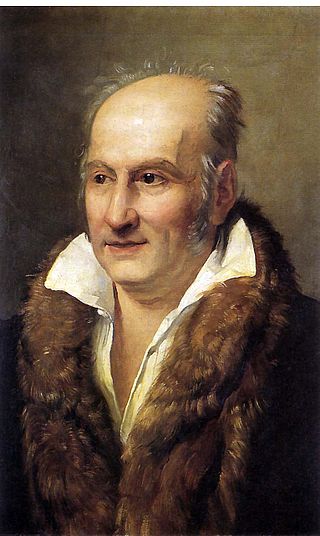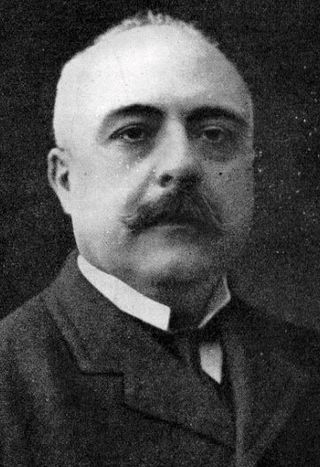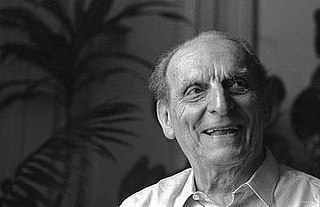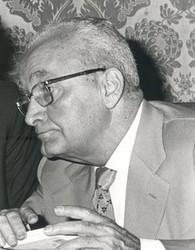Related Research Articles

Gian Domenico Romagnosi was an Italian philosopher, economist and jurist.

Antonio Salandra was a conservative Italian politician who served as the 21st prime minister of Italy between 1914 and 1916. He ensured the entry of Italy in World War I on the side of the Triple Entente to fulfil Italy’s irredentist claims.

Norberto Bobbio was an Italian philosopher of law and political sciences and a historian of political thought. He also wrote regularly for the Turin-based daily La Stampa. Bobbio was a social liberal in the tradition of Piero Gobetti, Carlo Rosselli, Guido Calogero, and Aldo Capitini. He was also strongly influenced by Hans Kelsen and Vilfredo Pareto.

Vittorio Emanuele Orlando was an Italian statesman, who served as the Prime Minister of Italy from October 1917 to June 1919. Orlando is best known for representing Italy in the 1919 Paris Peace Conference with his foreign minister Sidney Sonnino. He was also known as "Premier of Victory" for defeating the Central Powers along with the Entente in World War I. He was also the provisional President of the Chamber of Deputies between 1943 and 1945, and a member of the Constituent Assembly that changed the Italian form of government into a republic. Aside from his prominent political role, Orlando was a professor of law and is known for his writings on legal and judicial issues, which number over a hundred works.
Dionisio Anzilotti was an Italian jurist and judge of the Permanent Court of International Justice.
The Dicastery for Legislative Texts, formerly named Pontifical Council for Legislative Texts, is a dicastery of the Roman Curia. It is distinct from the highest tribunal or court in the Church, which is the Supreme Tribunal of the Apostolic Signatura, and does not have law-making authority to the degree the Pope and the Holy See's tribunals do. Its charge is the interpretation of existing canon laws, and it works closely with the Signatura and the other Tribunals and the Pope. Like the Signatura and the other two final appellate Tribunals, the Roman Rota and the Apostolic Penitentiary, it is led by a prefect who is a bishop or archbishop.

Sabino Cassese is an Italian Professor of Administrative Law and a former judge of the Constitutional Court of Italy.

Maria Rita Saulle was a professor of law and a judge in the Italian Constitutional Court from November 2005 until her death on 7 July 2011.
Fabrizio Marrella, born in Venice, Italy, is Professor of International Law and of International Business Law at the University of Venice. In 2008, he was appointed as the E.MA Programme Director at the European Inter-University Centre for Human Rights and Democratisation (EIUC) where he was a member of the Board of Directors.

Piero Sacerdoti was an Italian insurer and university professor, general manager of Riunione Adriatica di Sicurtà in Milan from 1949 to his death.

Angelo Messedaglia was an Italian social scientist, statistician and politician.

Pietro Ichino is an Italian politician and professor of labor law at the University of Milan. From 1979 to 1983, he was an independent left-wing MP belonging to the ranks of the Italian Communist Party. In 2008, he was elected senator for the Democratic Party in the district of Lombardy.

Stefano Rodotà was an Italian jurist and politician.
Teleadministration is based on the concept that documents in electronic format have legal value. Administrative informatics is not new, but for many years it was merely Information Technology applied to legal documents, that is, the reproduction of paper-based legal documents into electronic file systems. Instead, Teleadministration turns this approach into its head. It is based on research conducted in 1978, the year when, at a conference promoted by the Court of Cassation, Giovanni Duni launched the then-futuristic idea that an electronic document could have legal value. 1978 was also the year in which the first research on digital signatures (RSA) was published in the United States, yet it would take more than twenty-five years for jurists and mathematicians to start working together.
Franco Gaetano Scoca is an Italian lawyer and professor.

Massimo Severo Giannini was an Italian politician and jurist. He was Minister from 1979 to 1980. He also was a member of the Accademia dei Lincei and vice president of the Higher Council for Cultural Heritage.
Gioacchino Scaduto (1898—1979) was an Italian politician, teacher and jurist.
Umberto Laffi is an Italian historian.
The Italian public administration, in the Italian legal system, indicates the set of public bodies belonging to the public administration of the Italian Republic.
Agostino Gambino was an Italian jurist and politician. He served as Minister of Communications and President of the Associazione Internazionale di Diritto delle Assicurazioni.
References
- 1 2 3 4 Cammèo, Federico (in Italian). Enciclopedie On Line. Roma: Istituto dell’Enciclopedia Italiana. Accessed September 2015.